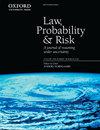分散式金融(DeFi)
IF 2.7
4区 社会学
Q1 LAW
引用次数: 71
摘要
DeFi(“去中心化金融”)加入了FinTech(“金融技术”)、RegTech(“监管技术”)、加密货币和数字资产的行列,成为全球金融领域讨论最多的新兴技术演变之一。然而,人们对它的意义、法律含义和政策后果却知之甚少。在本文中,我们介绍了DeFi,将DeFi放在传统金融经济的背景下,将DeFi与开放银行联系起来,并以一些政策考虑作为结束。我们认为,权力下放有可能破坏传统的问责制形式,削弱传统金融监管和执法的有效性。与此同时,我们发现,在金融服务价值链的某些部分去中心化的地方,价值链的另一部分(但可能监管较少、不太明显、不太透明)将出现重新集中。DeFi监管可以也应该把重点放在价值链的这一重新集中的部分,以确保有效的监督和风险控制。事实上,DeFi并没有消除对监管的需求,而是需要监管来实现其去中心化的核心目标。此外,DeFi可能为开发一种全新的监管设计方式提供了机会:“嵌入式监管”的理念。监管方法可以内置到DeFi的设计中,从而潜在地分散金融及其监管,最终表达RegTech。本文章由计算机程序翻译,如有差异,请以英文原文为准。
Decentralized Finance (DeFi)
DeFi (‘decentralized finance’) has joined FinTech (‘financial technology’), RegTech (‘regulatory technology’), cryptocurrencies, and digital assets as one of the most discussed emerging technological evolutions in global finance. Yet little is really understood about its meaning, legal implications, and policy consequences. In this article we introduce DeFi, put DeFi in the context of the traditional financial economy, connect DeFi to open banking, and end with some policy considerations. We suggest that decentralization has the potential to undermine traditional forms of accountability and erode the effectiveness of traditional financial regulation and enforcement. At the same time, we find that where parts of the financial services value chain are decentralized, there will be a reconcentration in a different (but possibly less regulated, less visible, and less transparent) part of the value chain. DeFi regulation could, and should, focus on this reconcentrated portion of the value chain to ensure effective oversight and risk control. Rather than eliminating the need for regulation, in fact DeFi requires regulation in order to achieve its core objective of decentralization. Furthermore, DeFi potentially offers an opportunity for the development of an entirely new way to design regulation: the idea of ‘embedded regulation’. Regulatory approaches could be built into the design of DeFi, thus potentially decentralizing both finance and its regulation, in the ultimate expression of RegTech.
求助全文
通过发布文献求助,成功后即可免费获取论文全文。
去求助
来源期刊

Law Probability & Risk
MATHEMATICSSTATISTICS & PROBABILITY&-STATISTICS & PROBABILITY
CiteScore
2.10
自引率
28.60%
发文量
8
期刊介绍:
Law, Probability & Risk is a fully refereed journal which publishes papers dealing with topics on the interface of law and probabilistic reasoning. These are interpreted broadly to include aspects relevant to the interpretation of scientific evidence, the assessment of uncertainty and the assessment of risk. The readership includes academic lawyers, mathematicians, statisticians and social scientists with interests in quantitative reasoning.
The primary objective of the journal is to cover issues in law, which have a scientific element, with an emphasis on statistical and probabilistic issues and the assessment of risk.
Examples of topics which may be covered include communications law, computers and the law, environmental law, law and medicine, regulatory law for science and technology, identification problems (such as DNA but including other materials), sampling issues (drugs, computer pornography, fraud), offender profiling, credit scoring, risk assessment, the role of statistics and probability in drafting legislation, the assessment of competing theories of evidence (possibly with a view to forming an optimal combination of them). In addition, a whole new area is emerging in the application of computers to medicine and other safety-critical areas. New legislation is required to define the responsibility of computer experts who develop software for tackling these safety-critical problems.
 求助内容:
求助内容: 应助结果提醒方式:
应助结果提醒方式:


